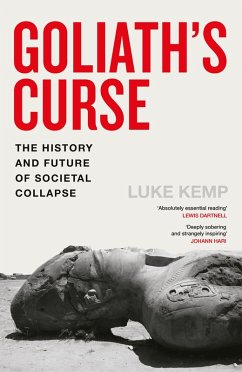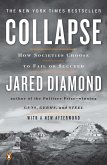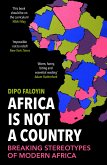A radical retelling of human history through collapse - from the dawn of our species to the urgent existential threats of the twentieth-first century and beyond - based on the latest research and a database of more than 440 societal lifespans over the last 5,000 years.
Why do civilisations collapse? Is human progress possible? Are we approaching our endgame?
For the first 200,000 years of human history, hunter-gathering Homo sapiens lived in fluid, egalitarian civilizations that thwarted any individual or group from ruling permanently. Then, around 12,000 years ago, that began to change.
Slowly, reluctantly we congregated in the first farms and cities, and people began to rely on lootable resources like grain and fish for their daily sustenance. When more powerful weapons became available, small groups began to seize control of these valuable commodities. This inequality in resources soon tipped over into inequality in power, and we started to adopt more primal, hierarchical forms of organisation. Power was concentrated in masters, kings, pharaohs and emperors (and ideologies were born to justify their rule). Goliath-like states and empires - with vast bureaucracies and militaries - carved up and dominated the globe.
What brought them down? From Rome and the Aztec empire and the early cities of Cahokia and Teotihuacan, it was increasing inequality and concentrations of power which hollowed these Goliaths out before an external shock brought them crashing down. These collapses were written up as apocalyptic, but in truth they were usually a blessing for most of the population.
Now we live in a single global Goliath. Growth-obsessed, extractive institutions like the fossil fuel industry, big tech, and military-industrial complexes rule our world and produce new ways of annihilating our species, from climate change to nuclear war. Our systems are now so fast, complex and interconnected that a future collapse will likelybe global, swift and irreversible. All of us now faces a choice: we must learn to democratically control Goliath, or the next collapse may be our last.
'Brilliant and insightful . . . guaranteed to keep you thinking during the day and wide awake with worry during the night' Eric Cline
'This is the book on societal collapse that I had always hoped someone would write' Walter Scheidel
Why do civilisations collapse? Is human progress possible? Are we approaching our endgame?
For the first 200,000 years of human history, hunter-gathering Homo sapiens lived in fluid, egalitarian civilizations that thwarted any individual or group from ruling permanently. Then, around 12,000 years ago, that began to change.
Slowly, reluctantly we congregated in the first farms and cities, and people began to rely on lootable resources like grain and fish for their daily sustenance. When more powerful weapons became available, small groups began to seize control of these valuable commodities. This inequality in resources soon tipped over into inequality in power, and we started to adopt more primal, hierarchical forms of organisation. Power was concentrated in masters, kings, pharaohs and emperors (and ideologies were born to justify their rule). Goliath-like states and empires - with vast bureaucracies and militaries - carved up and dominated the globe.
What brought them down? From Rome and the Aztec empire and the early cities of Cahokia and Teotihuacan, it was increasing inequality and concentrations of power which hollowed these Goliaths out before an external shock brought them crashing down. These collapses were written up as apocalyptic, but in truth they were usually a blessing for most of the population.
Now we live in a single global Goliath. Growth-obsessed, extractive institutions like the fossil fuel industry, big tech, and military-industrial complexes rule our world and produce new ways of annihilating our species, from climate change to nuclear war. Our systems are now so fast, complex and interconnected that a future collapse will likelybe global, swift and irreversible. All of us now faces a choice: we must learn to democratically control Goliath, or the next collapse may be our last.
'Brilliant and insightful . . . guaranteed to keep you thinking during the day and wide awake with worry during the night' Eric Cline
'This is the book on societal collapse that I had always hoped someone would write' Walter Scheidel
Renowned existential risk specialist Luke Kemp looks both back into history and forward into the future, spelling out the dangers that we currently face and suggesting ways in which we might avoid the pitfalls leading to collapse, before our luck runs out. This is a brilliant and insightful book, guaranteed to keep you thinking during the day and wide awake with worry during the night Eric Cline, author of 1177 B.C.: The Year Civilization Collapsed








